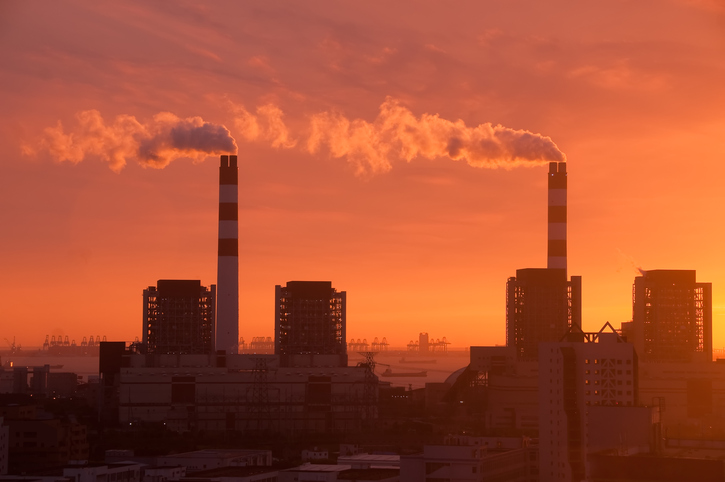The role of human influence in climate change is “undisputed” with many of the impacts now irreversible.
Within the Intergovernmental Panel on Climate Change’s (IPCC) latest report, the group assessed the findings of 234 authors from 66 countries, discovering that climate change is being observed across every region in the world.
Many of the changes now being seen are unprecedented in thousands of years, and some changes now set in motion will be irreversible over hundreds of thousands of years.
“This report is a reality check,” said IPCC Working Group I co-chair Valérie Masson-Delmotte. “We now have a much clearer picture of the past, present and future climate, which is essential for understanding where we are headed, what can be done and how we can prepare.”
Climate Change 2021: the Physical Science Basis, is the first in the IPCC’s Sixth Assessment Report (AR6), with following reports set to come from Working Group II on dealing with impacts, adaptation and vulnerability and Working Group III on dealing with the mitigation of climate change in 2022.
The report details the need for strong and sustained reductions in emissions of carbon dioxide and other greenhouse gases to limit climate change. This would provide benefits in air quality quickly, but it could take 20-30 years for global temperatures to stabilise still. Immediate, rapid and large-scale action is needed to reduce emissions if the world is to keep warming close to 1.5°C or even 2°C.
Within the report’s section on mitigation and sustainable development goals (SDGs) it highlighted that striving for such targets brings a number of benefits including affordable and clean energy. The design of suitable policies to reach these SDGs can be challenging, however, due to the complexity of linking emissions to aspects as wide ranging as human healthy, equity, infrastructure and costs.
To mitigate short-lived climate forcers therefore, the report suggests energy efficiency improvements, increased use of renewables and lower fossil fuel consumption.
Professor Simon Lewis, professor of global change science, University College London said the report contains a “stark message” that the “the level of devastation we face is in our collective hands” and highlights the steps needed for decarbonisation.
“Cutting emissions to net zero means keeping fossil fuels in the ground, ending deforestation, and rapidly moving to using renewable energy to power the global economy. The new report significantly raises the pressure on world leaders to agree detailed and achievable plans to immediately cut emissions when they meet for the UN climate summit in Glasgow in November.”
Progress has been made in the UK in terms of the growth of renewable energy, with 43.1% of generation in 2020 coming from renewable sources according to recent figures from the Department for Business, Energy and Industrial Strategy. This was the first time that renewables generated more electricity than fossil fuels in a year.
This year, the greenest grid record has already been smashed, with carbon intensity dropping to just 39gCO2/kWh on Monday 5 April at 1pm as zero carbon sources met almost 80% of demand.
While these are positive steps, more needs to be done in the UK and globally even to keep warming to 1.5°C. UN secretary-general António Guterres called for the IPCC report to be “a death knell for coal and fossil fuels”.
“There must be no new coal plants built after 2021,” he added. “OECD countries must phase out existing coal by 2030, with all others following suit by 2040. Countries should also end all new fossil fuel exploration and production, and shift fossil fuel subsidies into renewable energy.”
Britain is set to ban coal generation from 2024, having brought forward the date in June. Already coal has dwindled to just 2% of the nation’s electricity supply, and 2020 saw 67 days and 16 hours without coal in the fuel mix. The continued decline of the technology allowed another historic first, with Britain celebrating its first ‘coal free Christmas’.
As well as phasing out coal, solar and wind capacity should quadruple by 2030 added Guterres, and renewable energy investments triple to enable net zero by 2050.
An increase of 1.5°C will still mean an increase in heat waves, longer warm seasons and shorter cold seasons. But at 2°C of global warming heat extremes will reach critical tolerance thresholds for agriculture and health more often.
Along with these extreme instances, climate change already is intensifying the water cycle and affecting rainfall patterns, and sea level rise will continue throughout the 21st century, contributing to flooding and coastal erosion. Additionally, warming is amplifying permafrost thawing and bringing about changes to the ocean such as increasing acidification.
The report shows that human actions are responsible for approximately 1.1°C of the warming since 1850-1900 that has led to these changes. Averaged over the next 20 years, global temperature is expected to reach or exceed 1.5°C of warming.
But as humans caused the increase, we still have the potential to determine the future course of the climate by acting quickly to reduce emissions. As Inger Andersen, executive director at UNEP, noted in a press conference held this morning (9 August) by the IPCC, “the power is in our hands at this point”.
The sentiment was echoed by Nigel Pocklington, CEO of British utility Good Energy, who said that “many people will be feeling overwhelmed, but the good news is that it is equally unequivocal that we need human action to avert the worst”.
“That’s why the best antidote to anxiety about the climate crisis is to do something — like switch to real renewable power or clean transport.”





